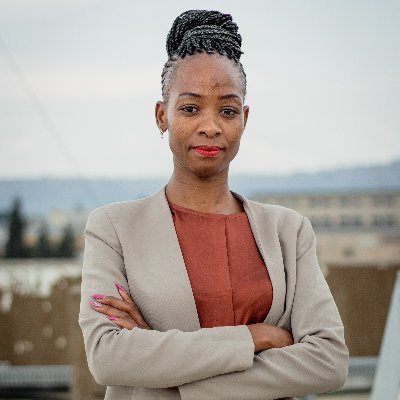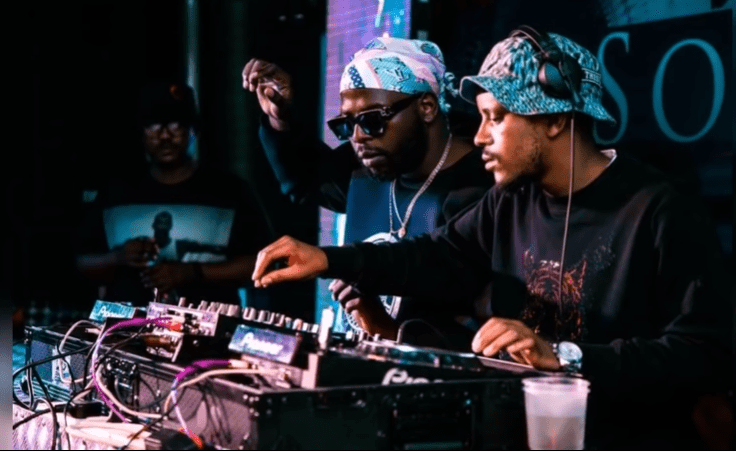…Only has 237 registered members
The Lesotho Spring Music Conference has, for the past decade, been a melting pot of creativity, collaboration and cultural exchange.
It has gathered musicians, industry professionals and thought leaders from across the region to debate the pressing issues facing the arts. Yet, at its 10th anniversary, one subject towered above all others: the crisis of compliance at the Lesotho Copyright Society of Authors and Artists (LESCOSAA).
Established under the Copyright Order of 1989 to protect the interests of authors, artists and performers, LESCOSA is meant to ensure that Basotho creators earn from their work.
But according to Advocate Chaka Maema, the organisation is struggling with both credibility and compliance.
“We only have 237 registered members,” he revealed, highlighting the mistrust that continues to plague the institution.
Although royalties are collected on behalf of all artists, whether registered or not, Maema stressed that registration is critical because pay-out is done only to members.
“Artists are encouraged to register because, within three years of collection on their behalf, the law allows us to redirect the fund to other operations. The mandate is that we pay those who have registered with us, while we collect for everyone who is a Mosotho,” he said.
Without greater participation, royalties meant for creators risk being lost.
But the compliance crisis goes beyond artists.
Lesotho’s largest broadcaster, Lesotho National Broadcasting Service (LNBS), operator of two radio stations and Lesotho Television (LTV), has not yet started paying royalties.
“We are still in talks with them. They have not understood properly how we operate,” Maema admitted, underscoring a lack of accountability in a government-owned institution.
Advocate Ntsietso Mokitimi of the South African Music Performance Rights Association (SAMPRA) minced no words about the root cause.
“There is infrastructure available that was built during the three governments back. Lesotho’s problem is political will, and it starts with the unwillingness of LNBS to comply,” she said.
Mokitimi explained that Lesotho’s regulatory structure could easily enforce compliance if ministries worked together.
“Restaurants and clubs are registered by the Ministry of Tourism, retail stores and supermarkets by trade, while the taxis’ industry is under the Ministry of Transport. All could integrate music licensing into their licensing fees. But ministries work in silos, and what should be a simple solution has become a far-fetched idea.”
From South Africa, Nishal Lalla of Recording Industry of South Africa (RiSA) warned that the lack of a collective voice also hampers progress.
“For Lesotho to adequately win this war, it needs unionism that will speak in one voice. There is a need for an organisation similar to RiSA if all parties are to benefit,” he urged.
At the heart of the crisis lies a contradiction. Maema painted a sad picture; music is everywhere in Lesotho, blaring in taxis, spinning in clubs, echoing from radios, and fuelling weddings, yet its creators remain unpaid.
LESCOSAA’s recent interviews with Newsday confirmed that misuse of music in public spaces often happens without awareness that licenses are required.
“You cannot expect to earn royalties if you have not registered your music or reported its use. Artists need to see themselves as entrepreneurs,” said Tsoamotse Relebohile, Membership and Documentation Manager with LESCOSAA, stressing that unless songs with multiple contributors are properly registered, fair distribution remains impossible, sentiments shared by Lalla from RiSA, who stressed that while music is being made, clear contracts binding all members simplify distribution of royalties for all involved.
This long-standing impasse has left creators asking whether royalties are a dream or an achievable reality, which is why the recent government gazette on music tariffs marks a potential breakthrough.
In November 2024, the Ministry of Tourism, Arts, and Culture, led by Minister Motlatsi Maqelepo, formalised tariffs for the commercial use of Basotho music.
“The government has embraced the arts as a vital sector within our national strategic development plan, recognising its potential to drive economic growth. We’re proud to have taken this important step toward giving value to creative work,” Maqelepo declared at a press briefing.
Under the gazette, users of music for commercial gain, from taxis and restaurants to radio stations, are now legally required to pay.
A five-seater taxi will pay M400 per year, while an 18-seater taxi will pay M1,400. Restaurants with 50-person capacity will pay M2,200 annually, while multi-roomed establishments will pay M240 for radios and televisions playing music. Broadcasters will be charged based on airplay, annual turnover, and content consumption.
LESCOSAA is expected to collect these tariffs annually and distribute them to registered artists. If implemented, this system could finally bring Basotho artists closer to being compensated for the soundtrack they provide to the nation.
Summary
- Established under the Copyright Order of 1989 to protect the interests of authors, artists and performers, LESCOSA is meant to ensure that Basotho creators earn from their work.
- The mandate is that we pay those who have registered with us, while we collect for everyone who is a Mosotho,” he said.
- This long-standing impasse has left creators asking whether royalties are a dream or an achievable reality, which is why the recent government gazette on music tariffs marks a potential breakthrough.

Co-Owner and Managing Editor of Newsday Media Lesotho. PEPFAR Media champion, Award wining features journalist, an Investigative journalist, REPSSI CAB member. Maseru, Lesotho Joined November 2009.







